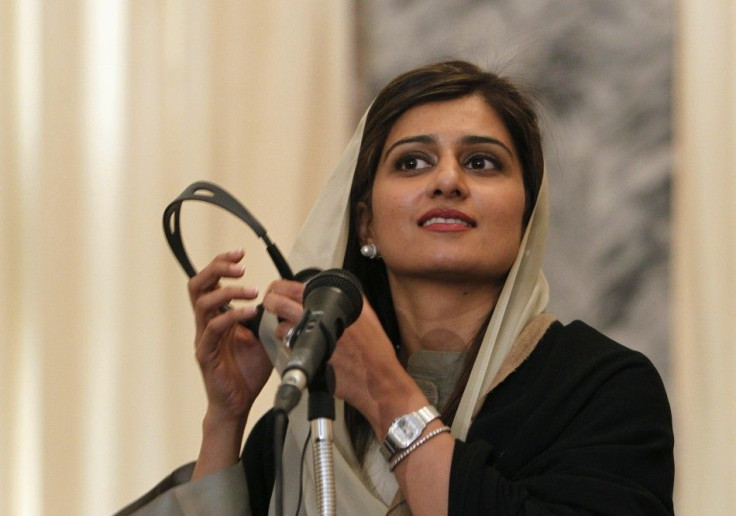Pakistan Rejects NATO Report Suggesting Links to Taliban

Pakistan has strenuously denied a leaked report from NATO which accused the Islamabad government’s security services of having direct links with the Afghan Taliban.
The report suggests that Pakistan may believe the Taliban is poised to regain power in its neighboring country, Afghanistan, after western forces depart.
The report, entitled State of the Taliban: Detainee Perspectives, apparently was culled from interviews and interrogations of thousands of people, including prisoner.
The premise of the report is basically that Pakistani officials are well aware of the location of Taliban chiefs both in Pakistan and Afghanistan; and that Pakistan's dreaded Inter-Services Intelligence (ISI) network is intimately involved with the Taliban's campaign against Afghan troops and their western allies in Afghanistan.
The report also surmises that the Taliban will emerge as the rulers of Afghanistan after all foreign soldiers have departed in 2014.
The report categorically states: Pakistan's manipulation of the Taliban senior leadership continues unabatedly. Senior Taliban representatives, such as Nasiruddin Haqqani, maintain residences in the immediate vicinity of ISI headquarters in Islamabad.”
The explosive charges will likely further widen the gulf between two erstwhile allies, the United States and Pakistan. The accusations also will raise the suspicions of Afghanistan and its president Hamid Karzai regarding Pakistan.
However, Abdul Basit, a spokesman for Pakistan’s foreign ministry, said in a statement: This [report] is frivolous, to put it mildly. We are committed to non-interference in Afghanistan and expect all other states to strictly adhere to this principle.”
The allegations are not new at all – many western governments as well as Kabul have suspected ties between the militant Taliban and the highest levels of Pakistan’s government.
Hina Rabbani Khar, the Pakistani foreign minister, shrugged off the NATO report, while meeting with Karzai in Kabul. (Her visit with Karzai was scheduled before the NATO document was leaked).
We can disregard this [NATO report] as a potentially strategic leak... This is old wine in an even older bottle, she said.
These claims have been made many, many times. Pakistan stands behind any initiative that the Afghan government takes for peace. We consider any threat to Afghanistan's independence and sovereignty as a threat to Pakistan's existence.
The Afghan Foreign Minister Zalmai Rasoul said Pakistan is a crucial player in regional security.
Pakistan plays a key role in Afghan peace process. I hope Ms. Rabbani's visit is the beginning of a good relationship between our two countries, he said.
Still, suspicions swirl regarding Pakistan’s double-game. Jennifer Glasse, a correspondent for Al Jazeera in Kabul, wrote of the ongoing crisis in confidence: “Many Afghans believe the Taliban are playing for time because they want a role in the future of Afghanistan, and many are concerned that they might come back to power. Their return would tighten the gains of the past decade such as women’s rights.”
Aleem Maqbool, a BBC correspondent in Islamabad, suggests that Pakistan is rapidly losing what little credibility it may have once had.
“Pakistan is finding it harder to convince outsiders it is not helping the Afghan Taliban and giving safe haven to its leaders,” he wrote.
“In effect, the accusation is that Pakistan is betting on the insurgents being the strongest power in Afghanistan and most likely ally once NATO leaves -- something Islamabad of course strenuously denies.”
Maqbool added: “The leak of this report comes at a particularly sensitive time. Pakistan is already blocking the supply route to coalition forces in Afghanistan, following a NATO attack in which 24 Pakistani soldiers were killed. With increasing pressure being heaped on Pakistan, public support here for formally ending co-operation with the West simply grows.”
It is not clear to what extent Karzai will accept Taliban influence in a post-NATO Afghanistan. Taliban officials have already opened a political office in Qatar in the Persian Gulf to establish some credibility as a viable political force.
Separately, the Taliban has denied that they are planning to hold preliminary negotiations with the Afghan government in Saudi Arabia.
There is no truth in these published reports saying that the delegation of the Islamic Emirate [Taliban] would meet representatives of the Karzai government in Saudi Arabia in the near future, said spokesman Zabihullah Mujahid in a statement.
© Copyright IBTimes 2025. All rights reserved.





















